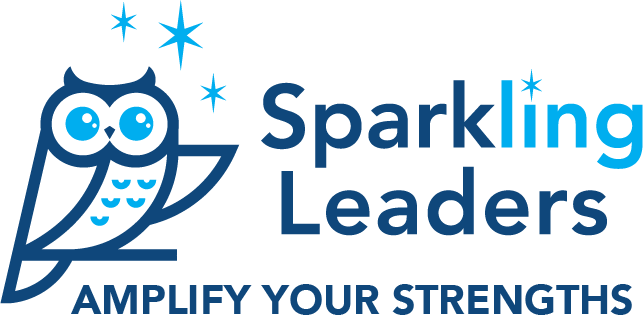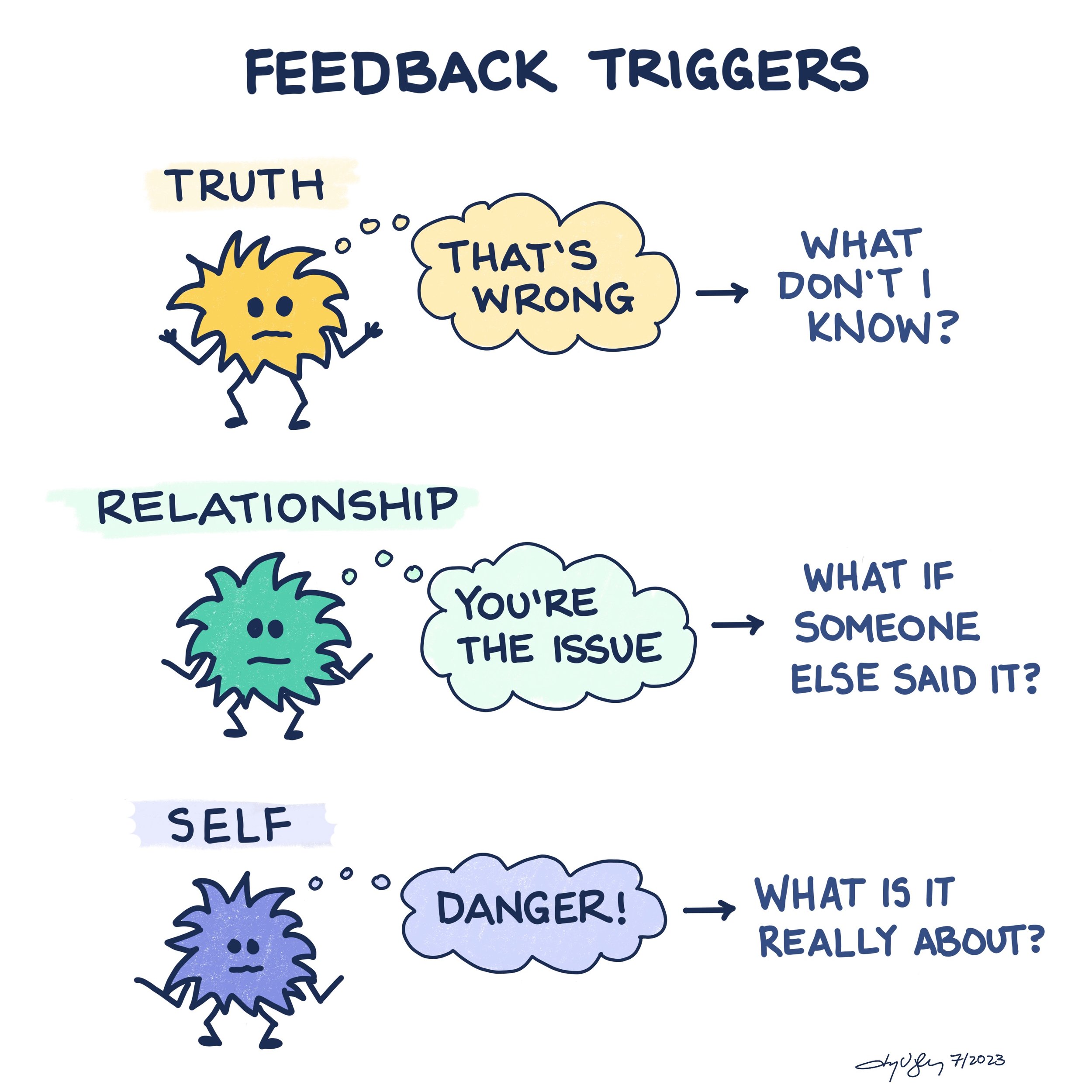Things That Get in the Way of Understanding Feedback
There are multiple ways people provide feedback and multiple roadblocks we may encounter to understanding what the other person is trying to communicate. Whenever you receive feedback, thank the feedback giver, and then give yourself time to process it.
In Stone and Heen’s Thanks for the Feedback: The Science and Art of Receiving Feedback Well, they discuss three feedback triggers: truth, relationships, and self or identity. These obstacles also provide important information that can be used to help manage our reactions and better understand the feedback.
Truth is the trigger that often causes us to disregard feedback because we think it is wrong. When we find ourselves questioning the veracity of feedback, it’s helpful to try to uncover what we might not know. Was the impact of something we did different from our intentions or is there strategic information we are not aware of? Ask questions to figure out if you are missing something.
The relationship trigger arises when it’s hard to accept information because of the source. Have you had an issue with the person giving the feedback in the past? Is their method of communication challenging for you? Try to separate the feedback from the person or delivery method.
The self or identity trigger may be the most challenging as it makes us feel as though someone is trying to attack who we are. Is there something we’ve been told was an issue in the past that we’ve been working on or something we never wanted to be that the feedback giver has labeled us as? In this case, start by trying to uncover what the feedback is really about. Is there something we can learn from it?
Try analyzing the feedback you receive by making a list of what’s wrong or unfair and what is right and possible (see the analyzing feedback blog entry).
I also like to keep Martin Seligman’s 3Ps* (personalization, permanence, and pervasiveness) in mind. Think about what outside causes might also contribute to the situation, how setbacks are temporary, and what areas the feedback doesn’t apply to.
Here’s to being curious and creating cultures of learning!
*Learned Optimism: How to Change Your Mind and Your Life, Martin Seligman

